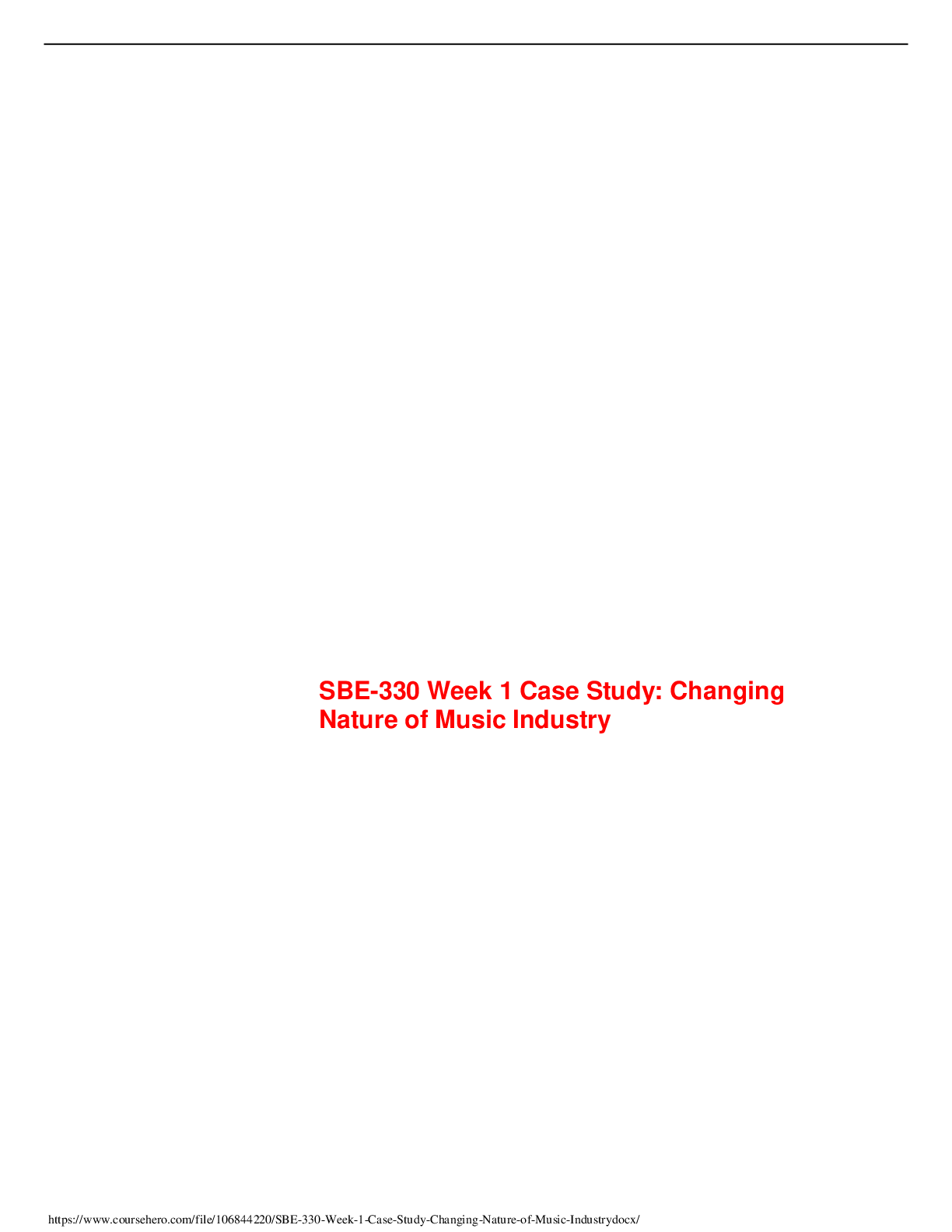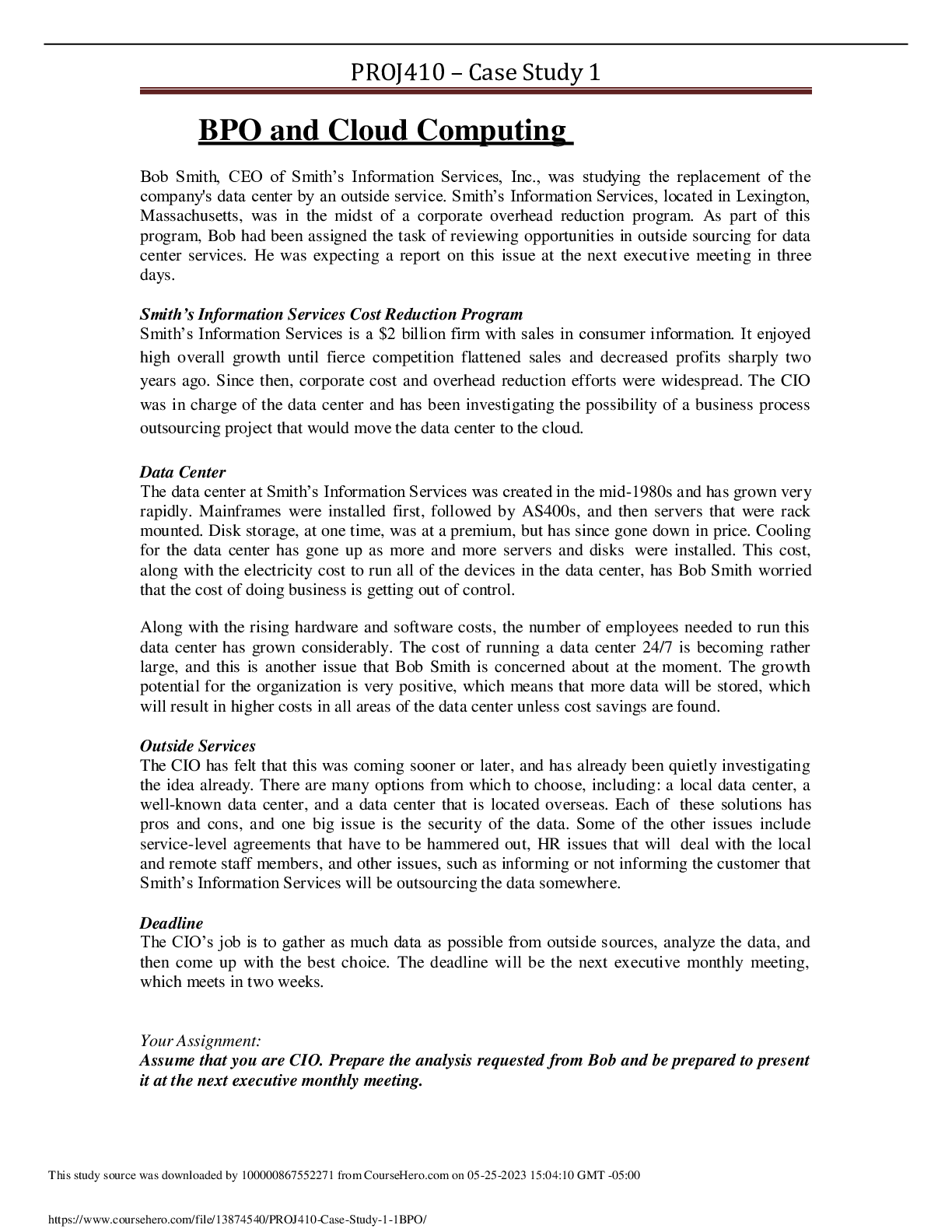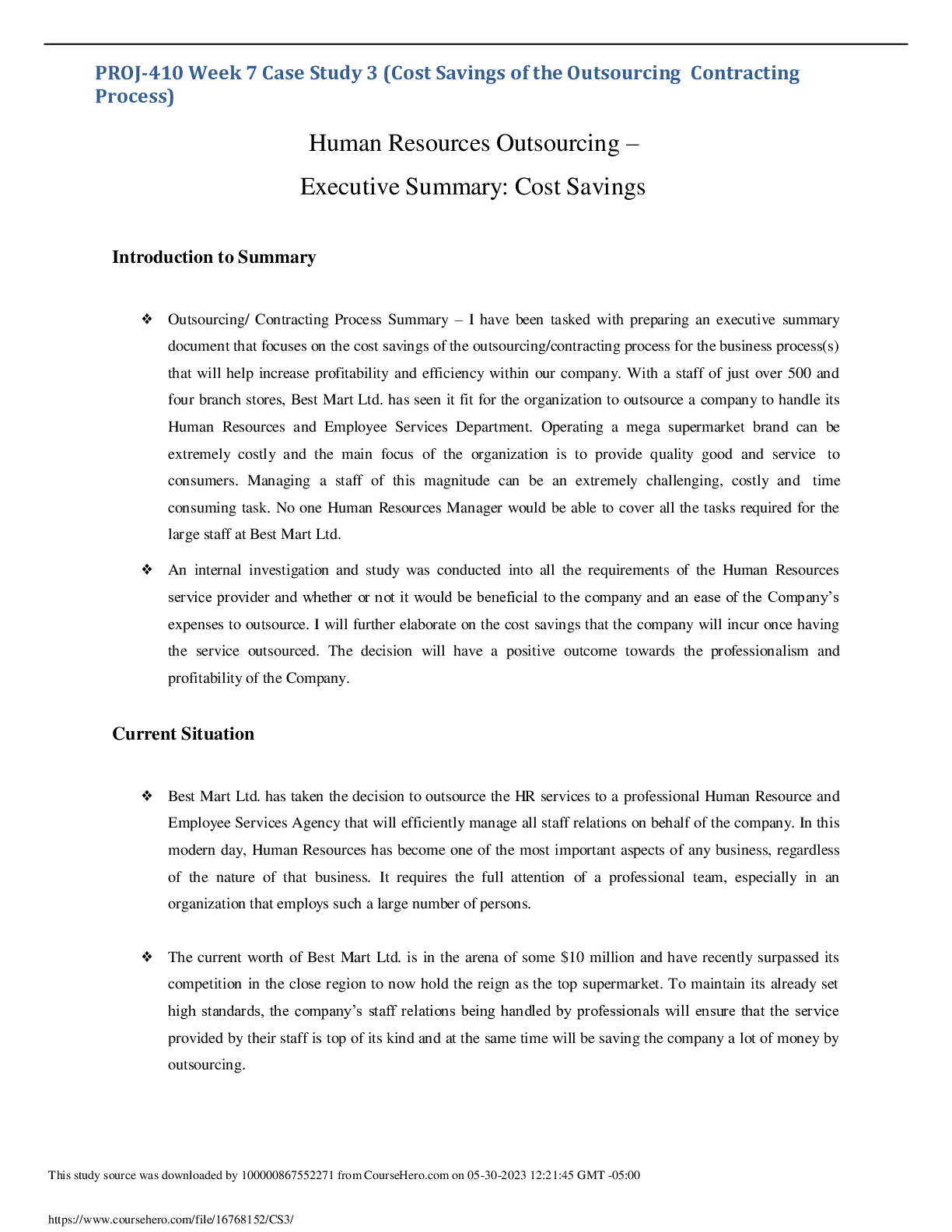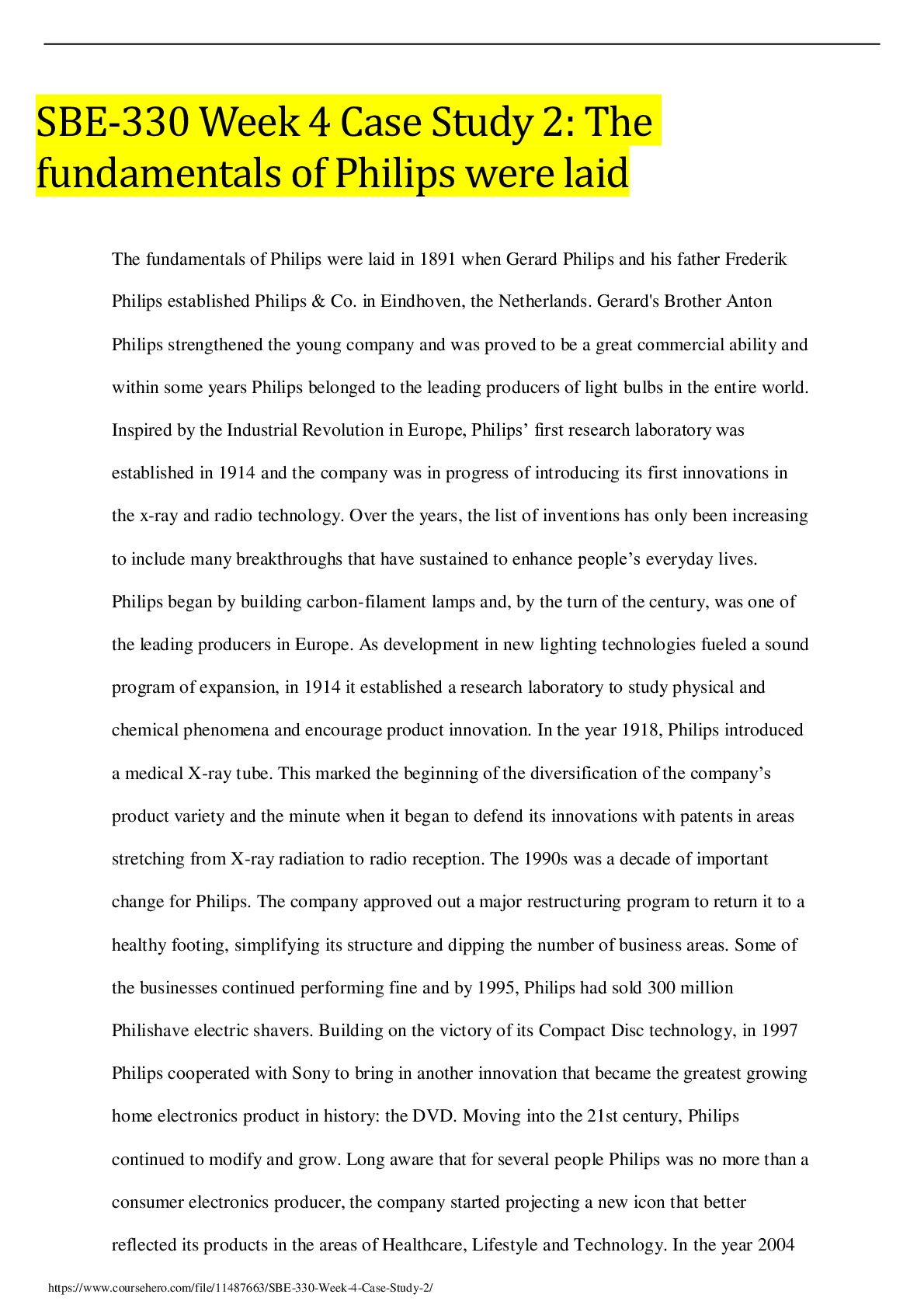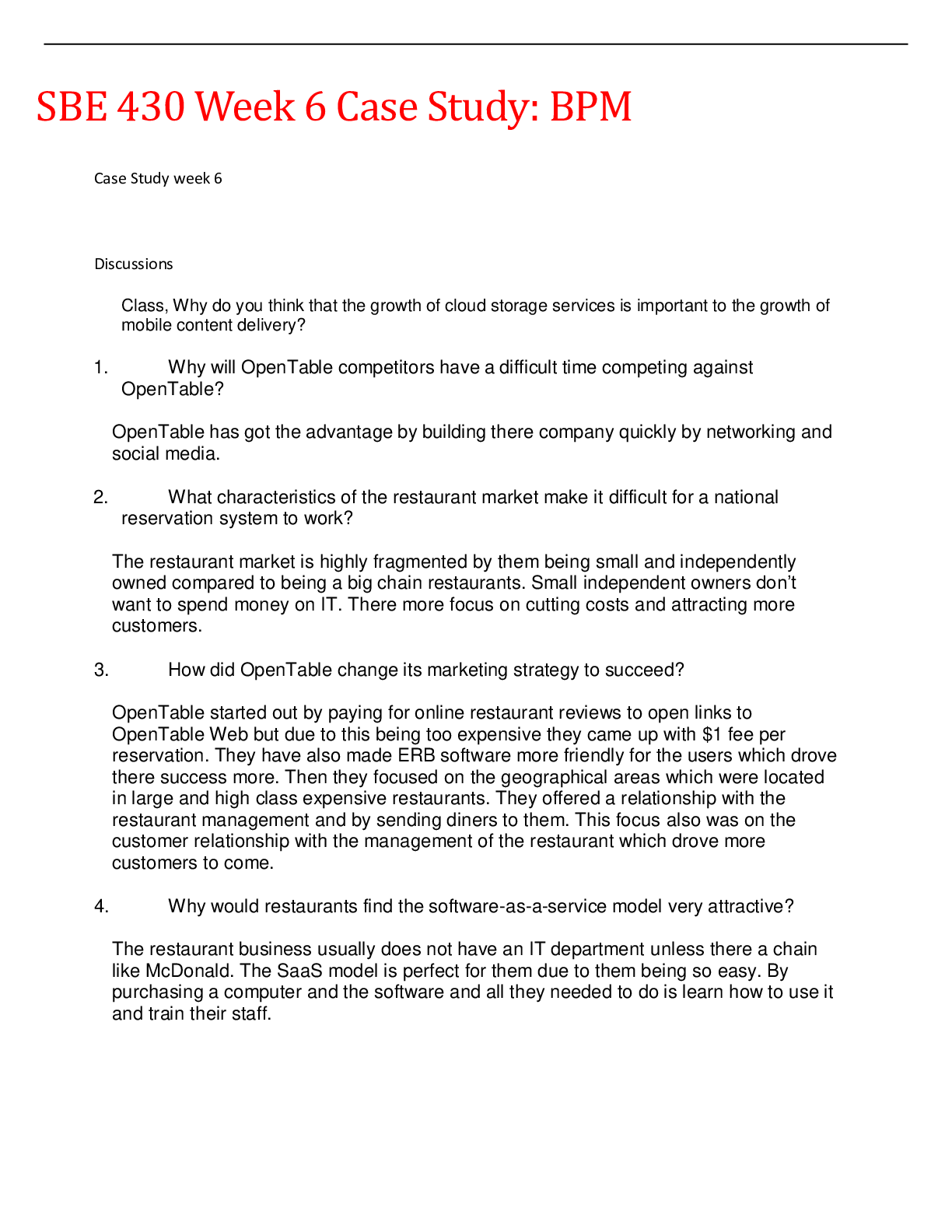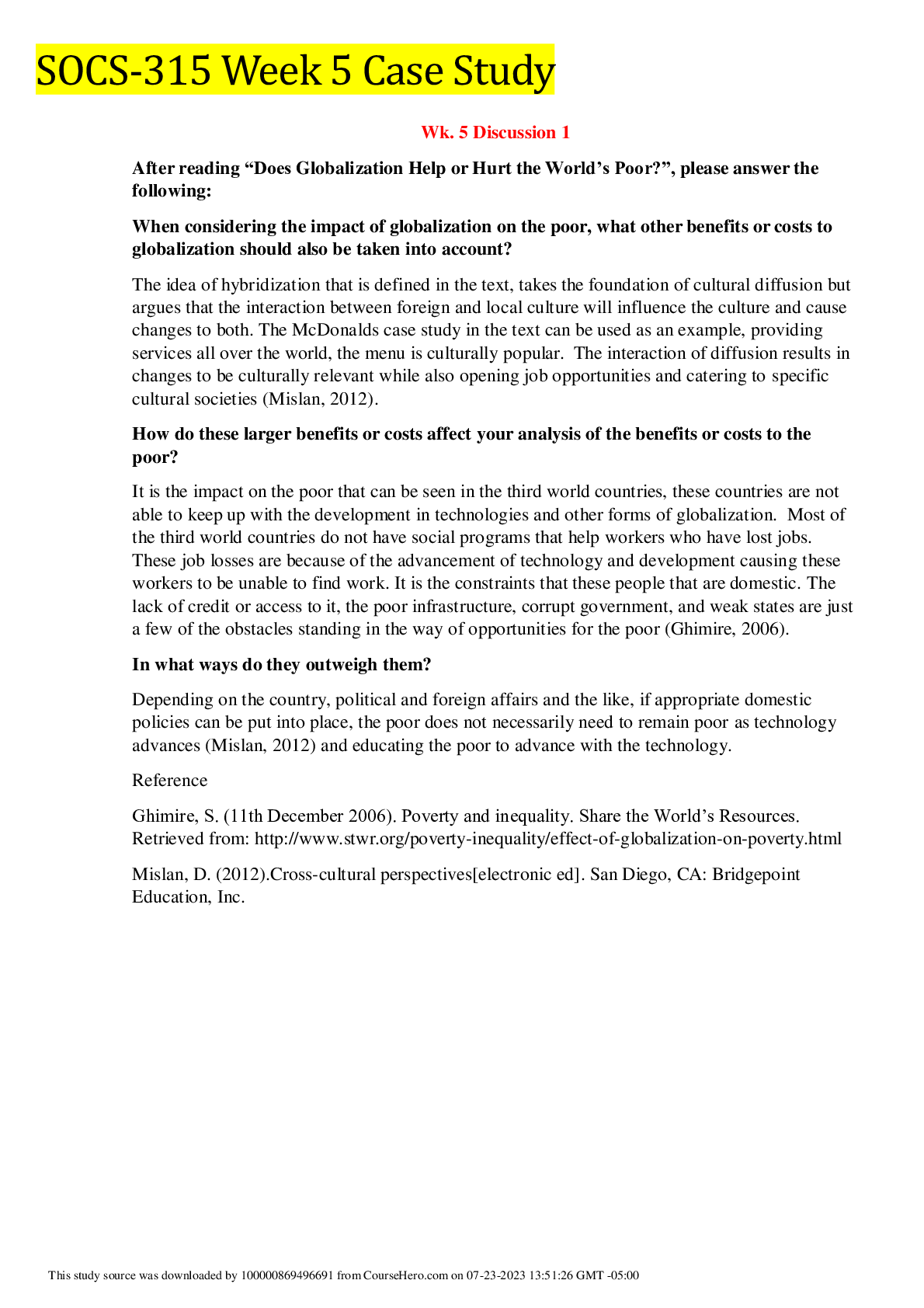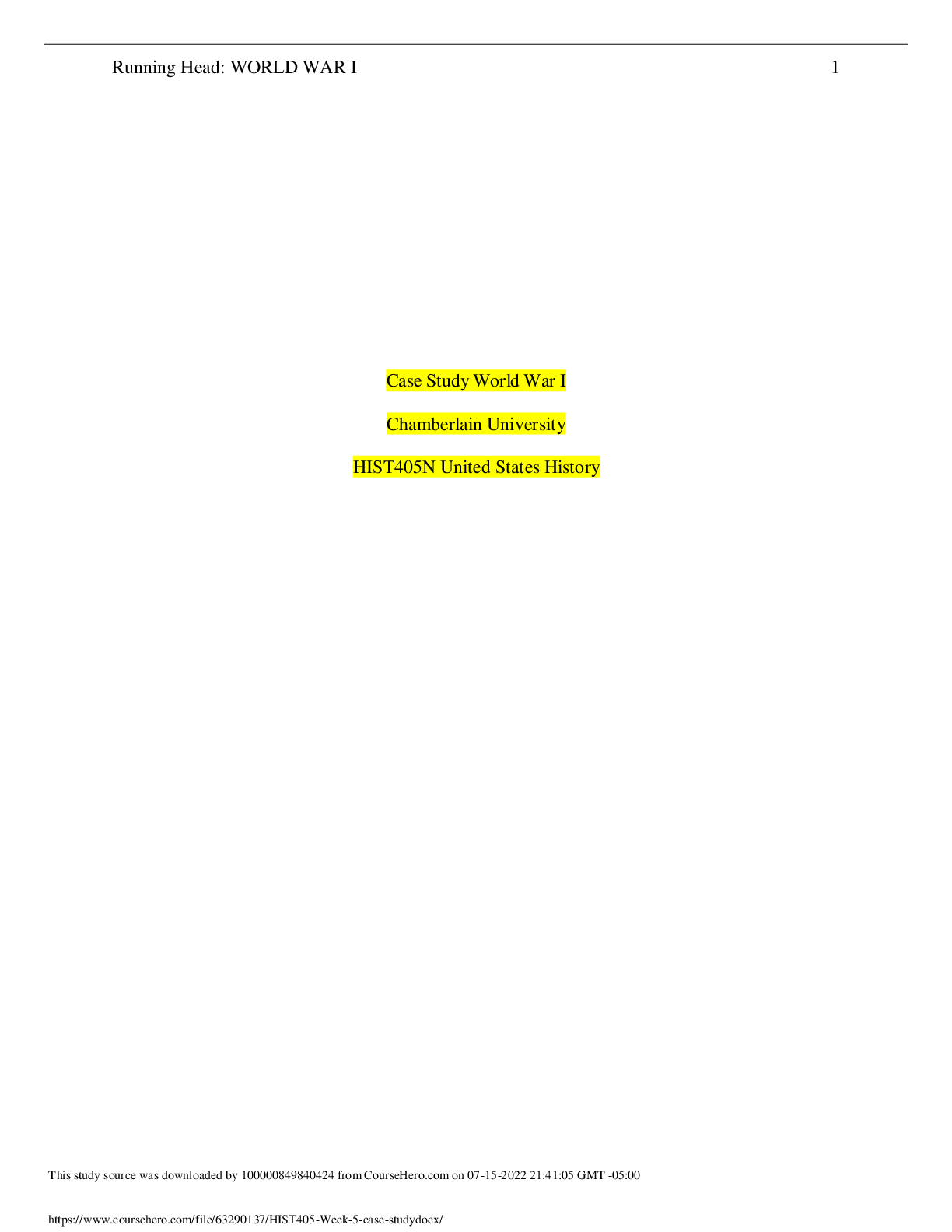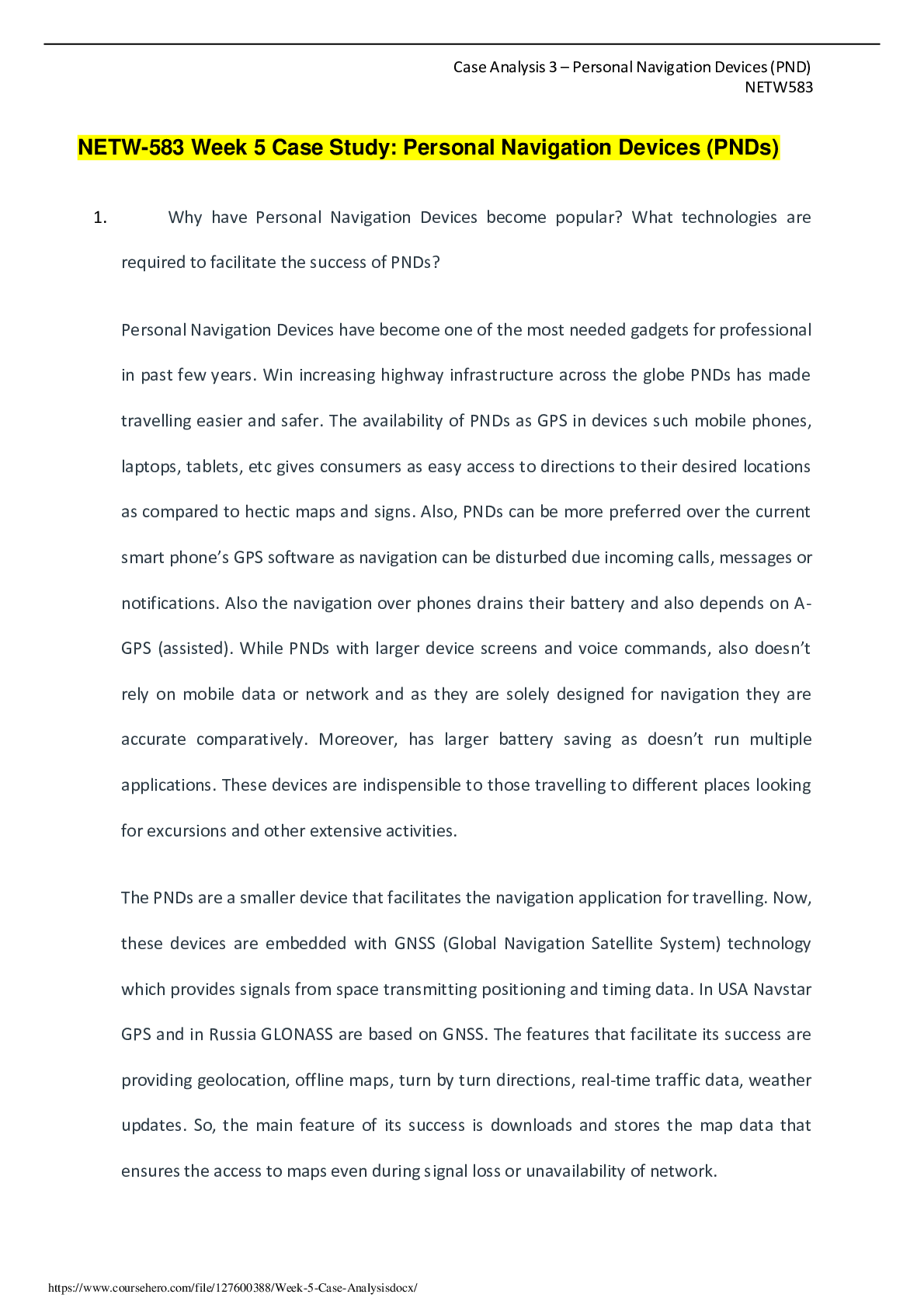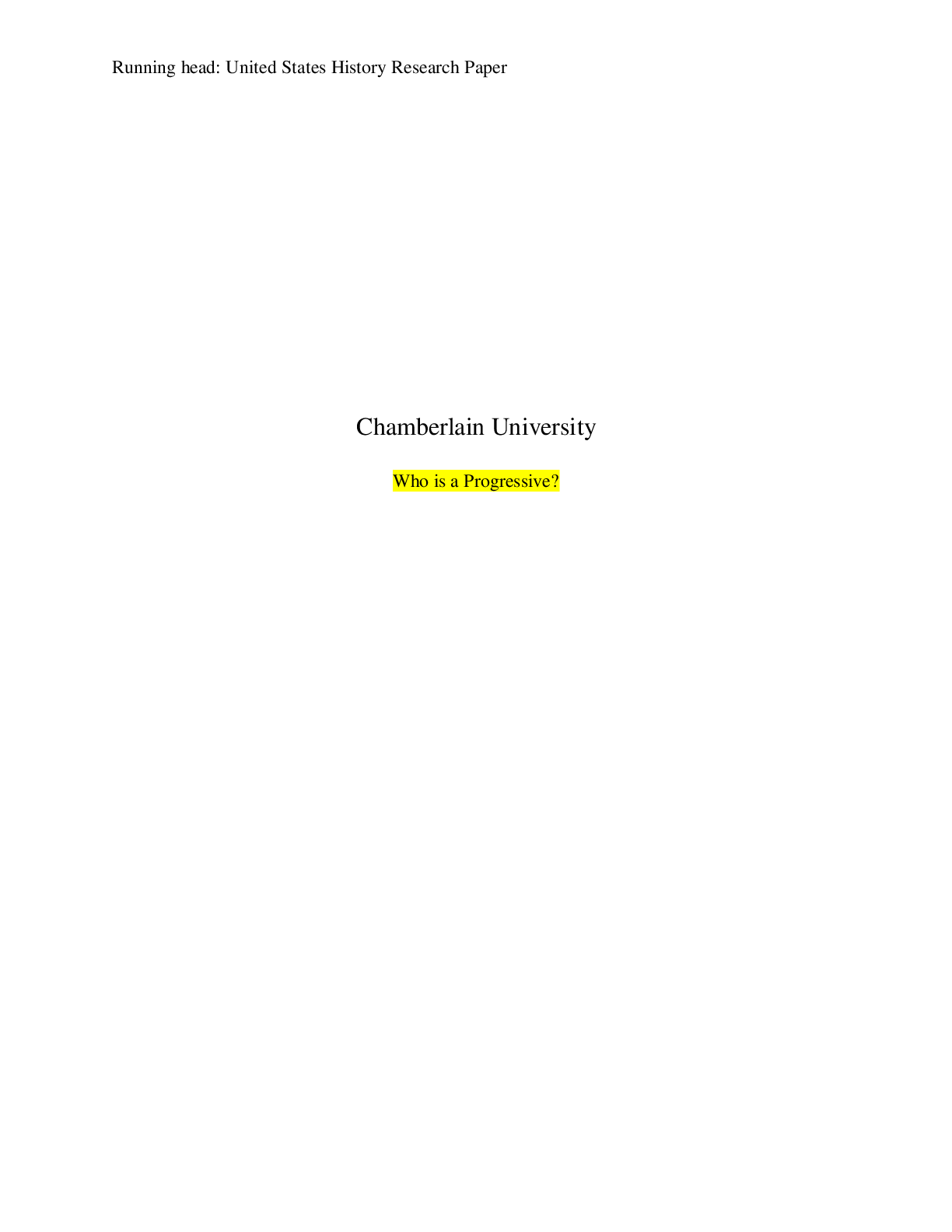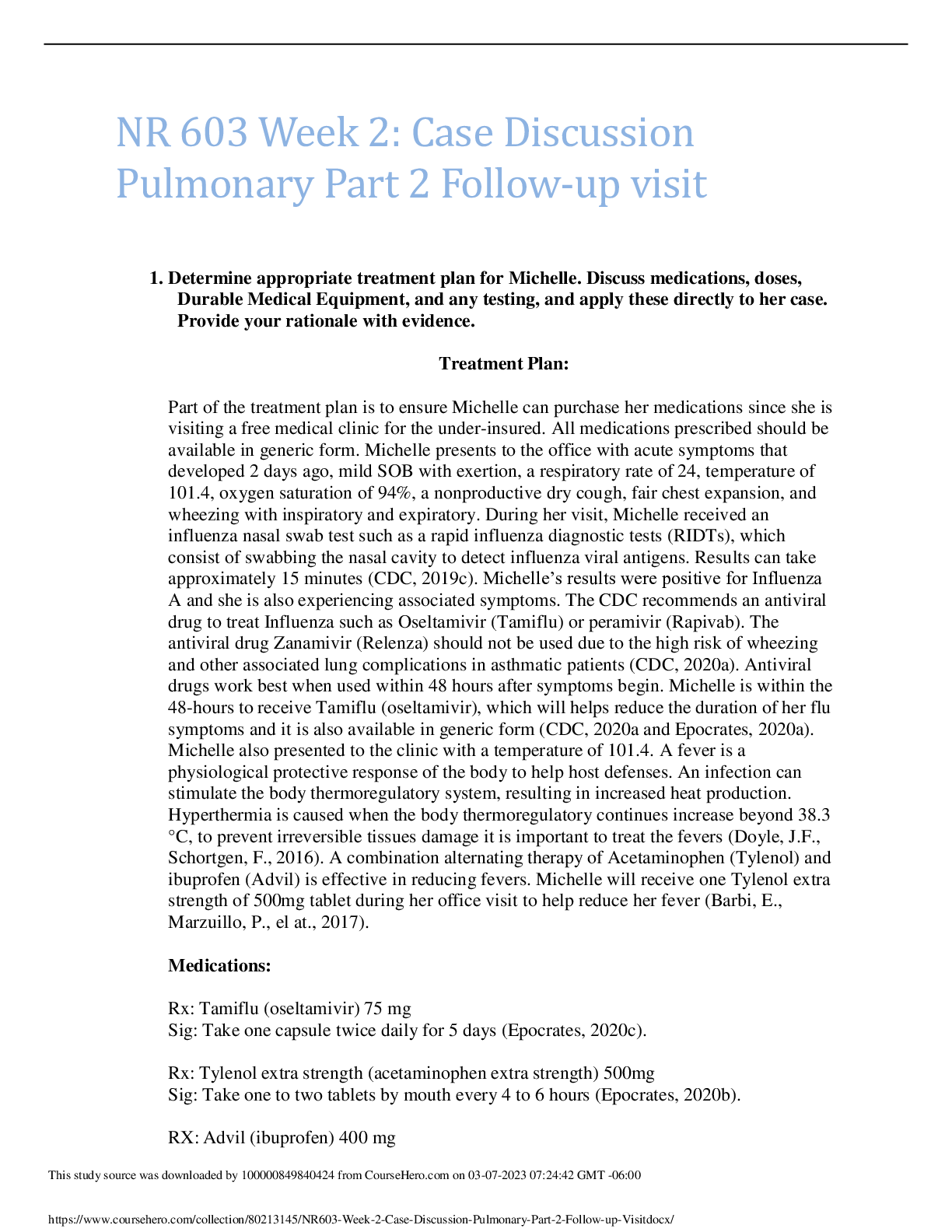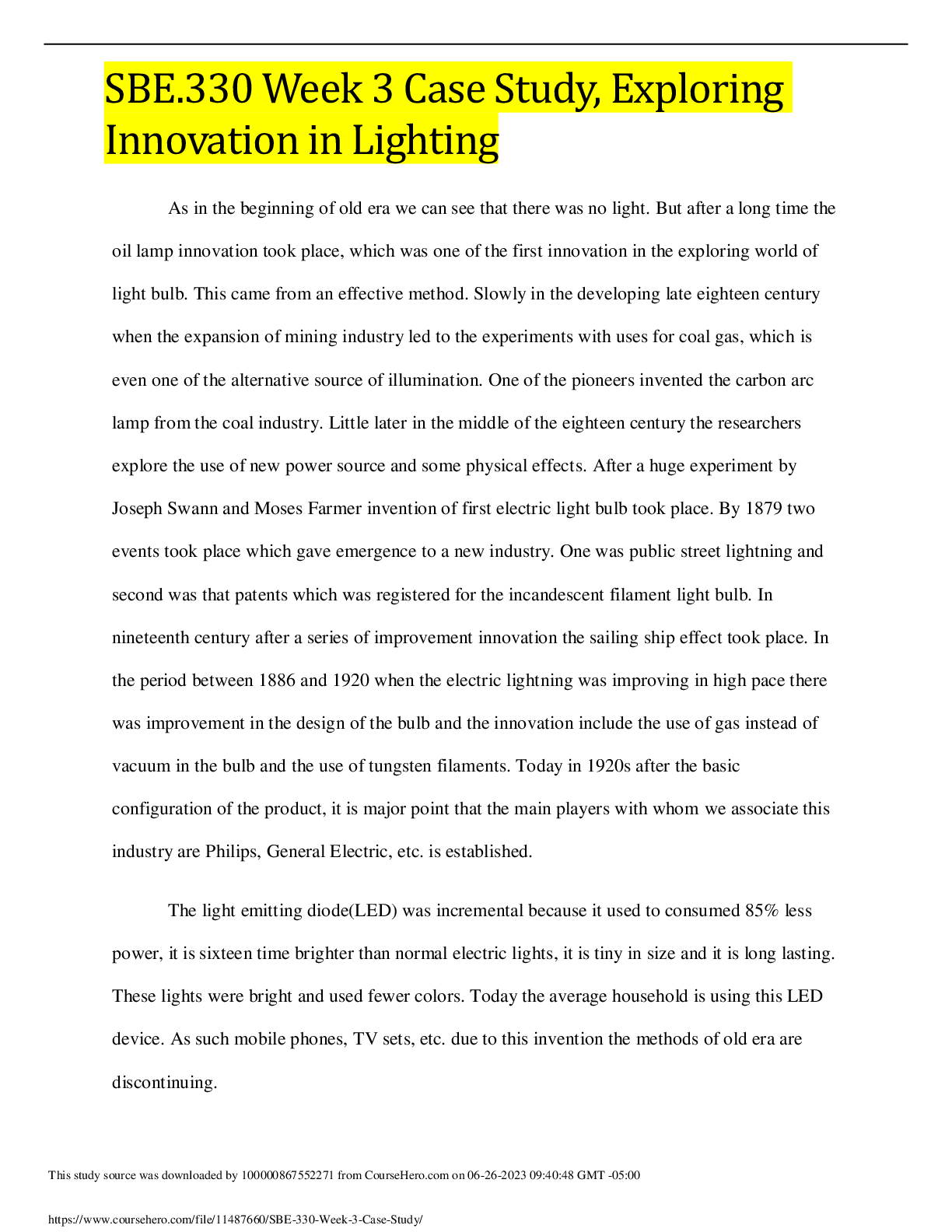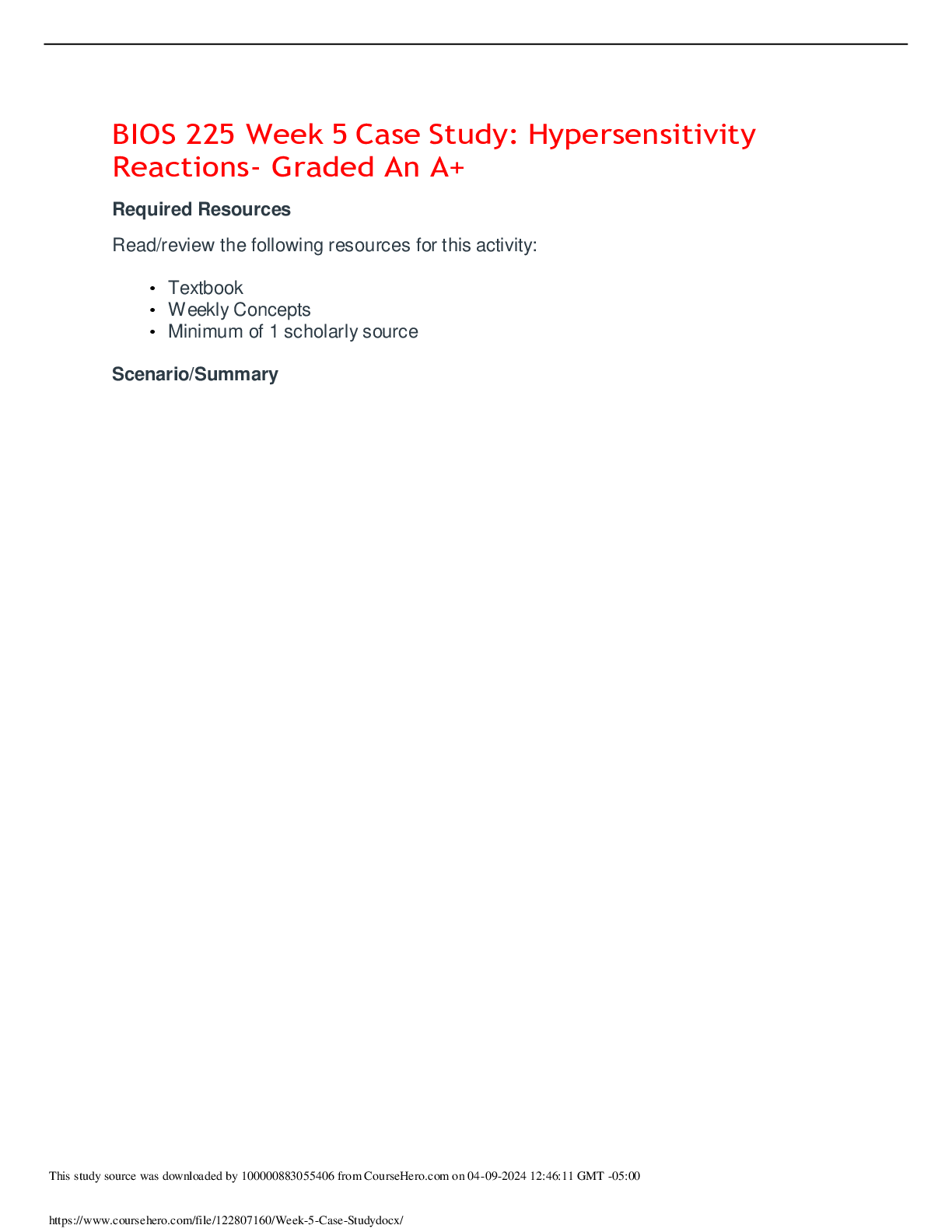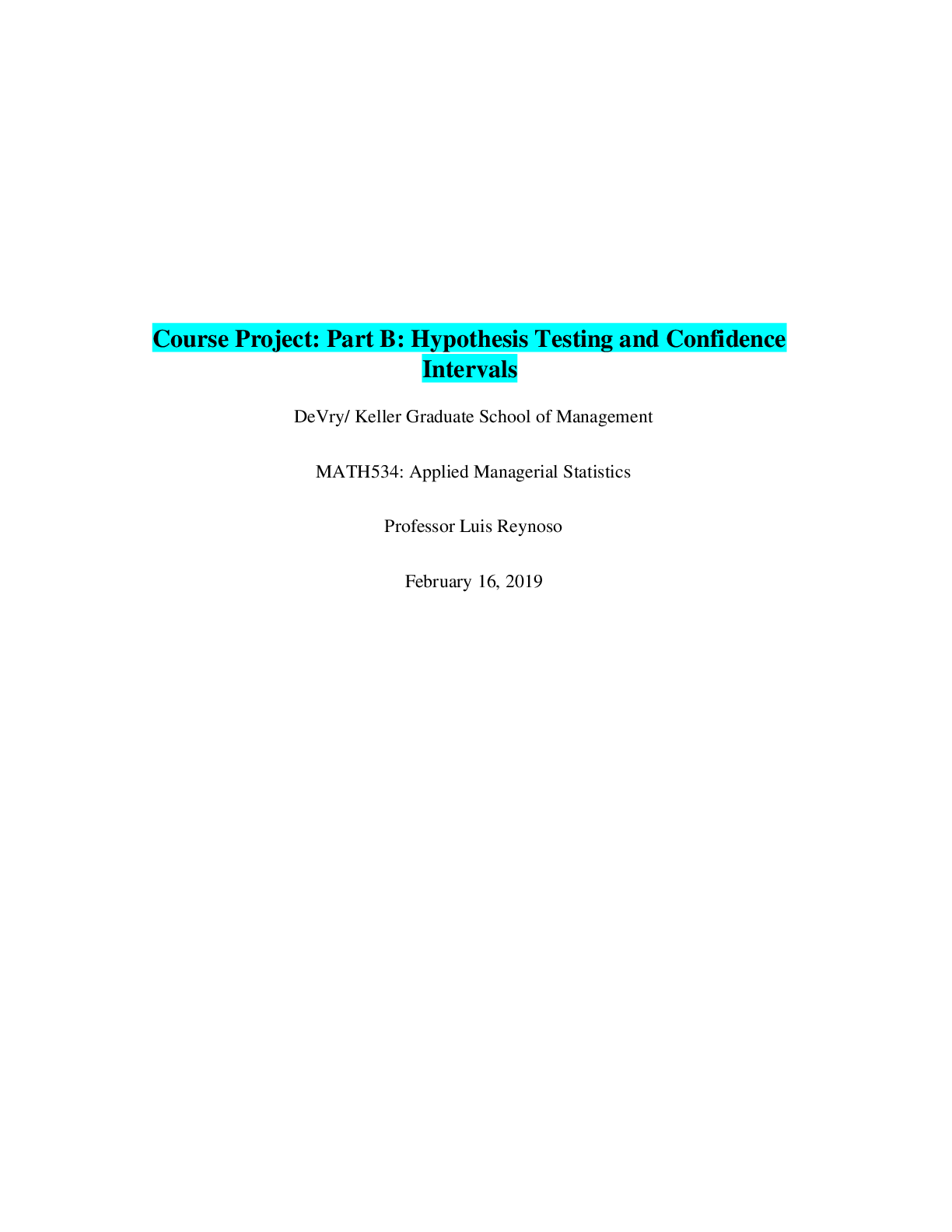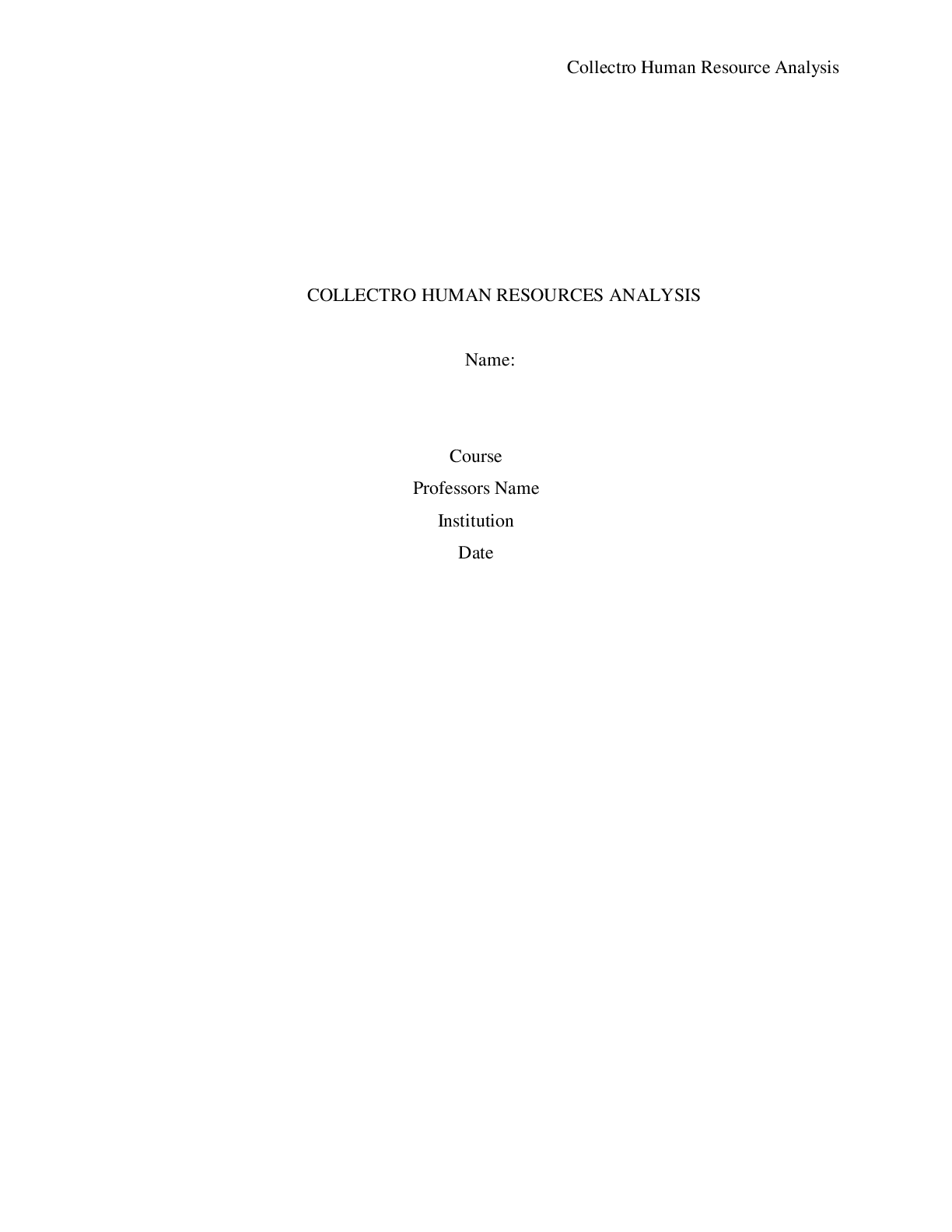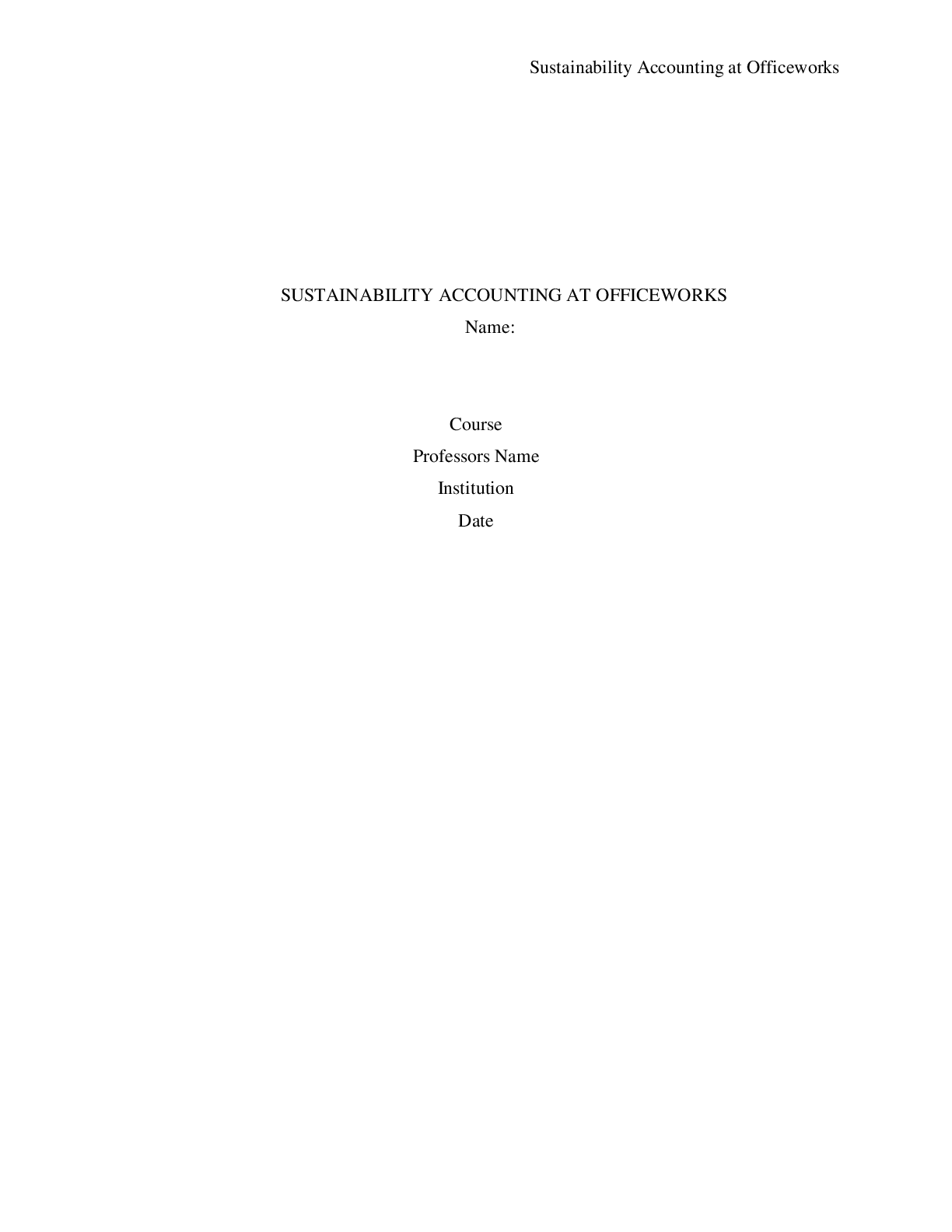Business Management > CASE STUDY > SBE.330 Week 5 Case Study: Freeplay Lifeline - Graded An A+ (All)
SBE.330 Week 5 Case Study: Freeplay Lifeline - Graded An A+
Document Content and Description Below
Questions: 1) How could you reconcile the social agenda – make radios freely available – with the commercial challenges of running a business? What problems do you think Freeplay/Lifeline Energ... y face in trying to sustain the business? Answer: - The Freeplay Lifeline is the world’s most famous humanitarian radio. It has brought innumerable benefits and trust to millions of listeners in the developing world. Lifeline makes sure that radio content can be efficiently heard by people anytime, anywhere. The use of radio is increasing. Problems faced by lifeline energy: - The challenges of sustaining business in today’s are being caused by declining demand for radio offerings due to lifestyle changes, the wide availability of substitutable audio platforms, and the main content currently being offered. The deteriorating relationship with Freeplay’s new owner provided substantive reason to set up their own for-profit company called Lifeline Technologies Trading Ltd (LTTL) in the UK and they hired a highly-skilled, experienced designer who got acknowledged with their values and mission. For the MP3 product, they understood that they had to control every aspect of design, development and manufacture specified that this would be a product used mainly in remote areas for education. Fundamental market changes are moving radio stations towards an uncertain future and managers and owners should to begin developing strategic responses to developments in their industry and earn profits. Advertisers sense the problem with audiences and the share of advertising expenditures going to radio is failing. The structure and contributions of the radio industry have been used to several times during its 9-decade history, but the last time the industry desired to recreate itself so dramatically occurred with the arrival of television. The introduction of television resulted in radio shifting from a general entertainment and information medium to a music entertainment stage in several nations. In the U.S., broadcasters on A.M. radio soon after shifted in the direction of a talk and sports platform after F.M. developed and music migrated to that spectrum, creating new opportunities on both bands. These problems are compounded in the U.S. since the rise of radio groups after deregulation in the mid 1990s led to national radio programmers making selections, dipping the range of genres of music and other content on radio stations. Overall, programming has become not as much of local and less important as content decisions have been made elsewhere. [Show More]
Last updated: 10 months ago
Preview 1 out of 2 pages
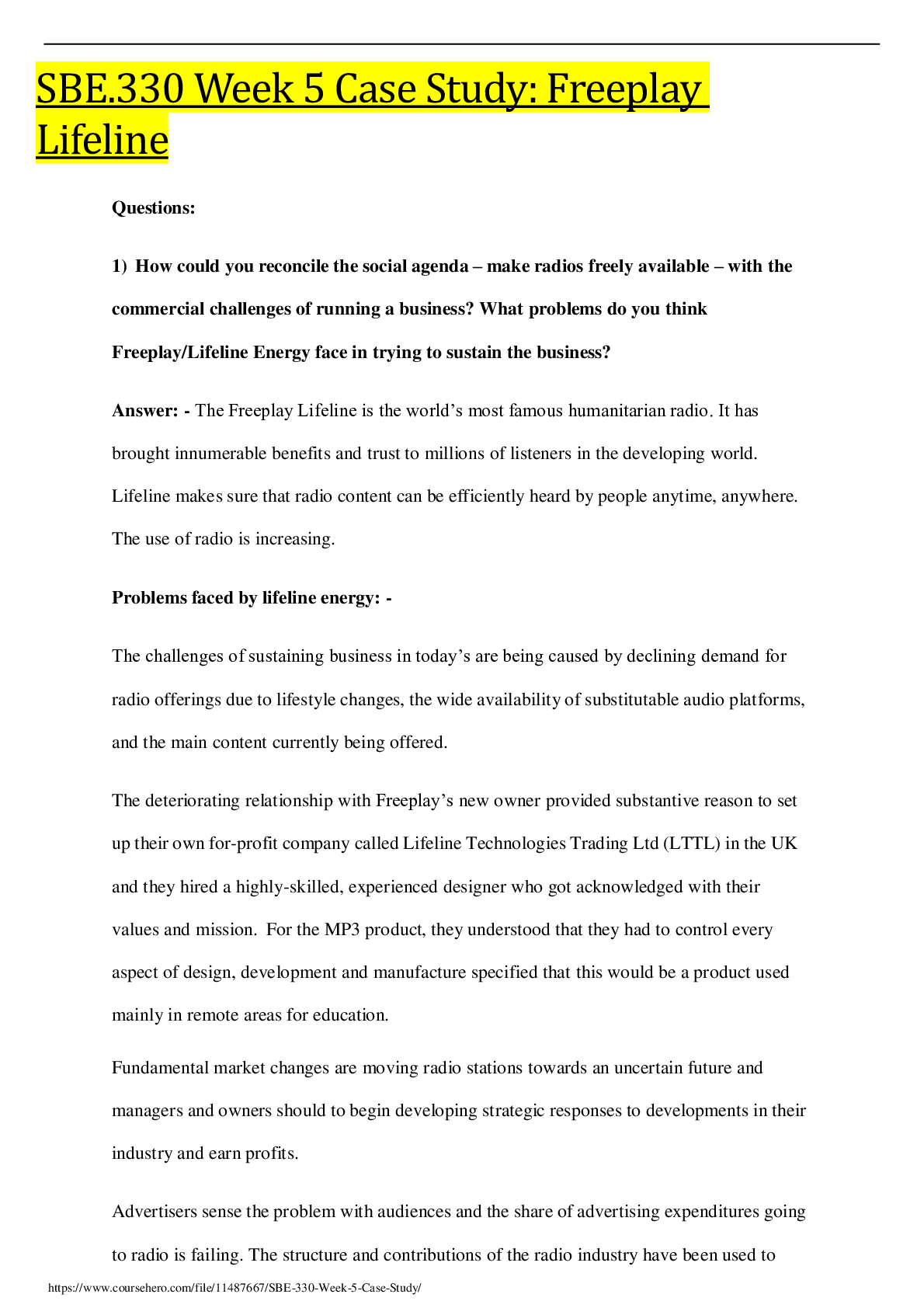
Reviews( 0 )
Document information
Connected school, study & course
About the document
Uploaded On
Jul 03, 2023
Number of pages
2
Written in
Additional information
This document has been written for:
Uploaded
Jul 03, 2023
Downloads
0
Views
128




